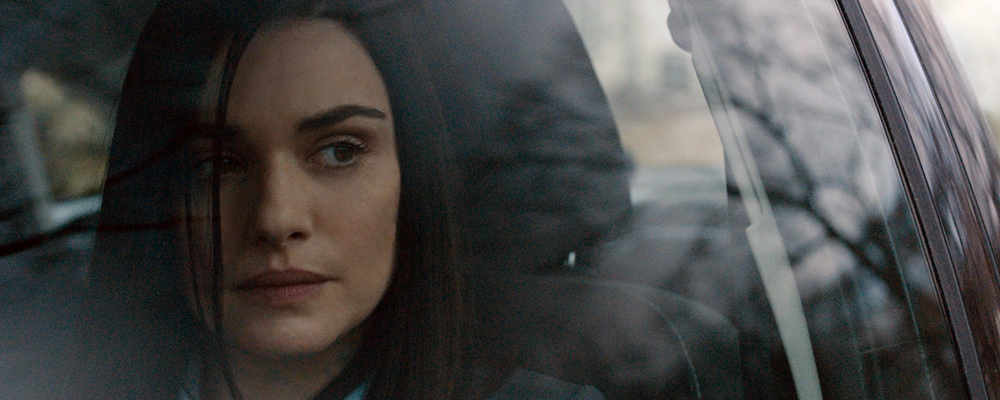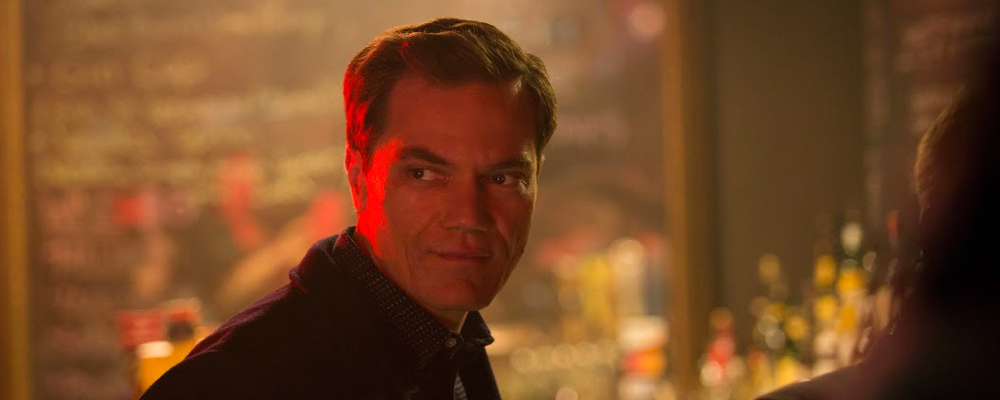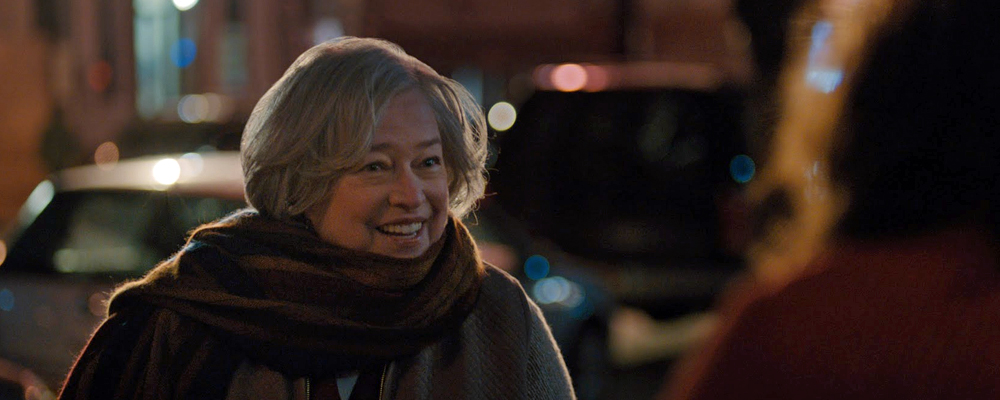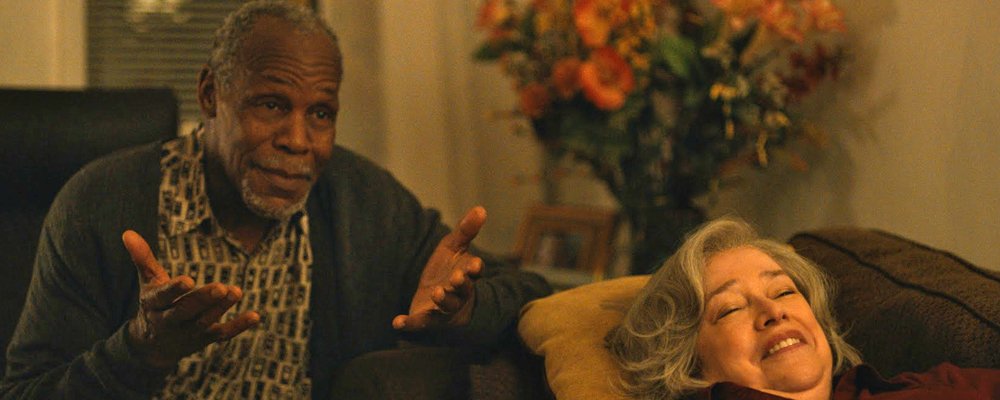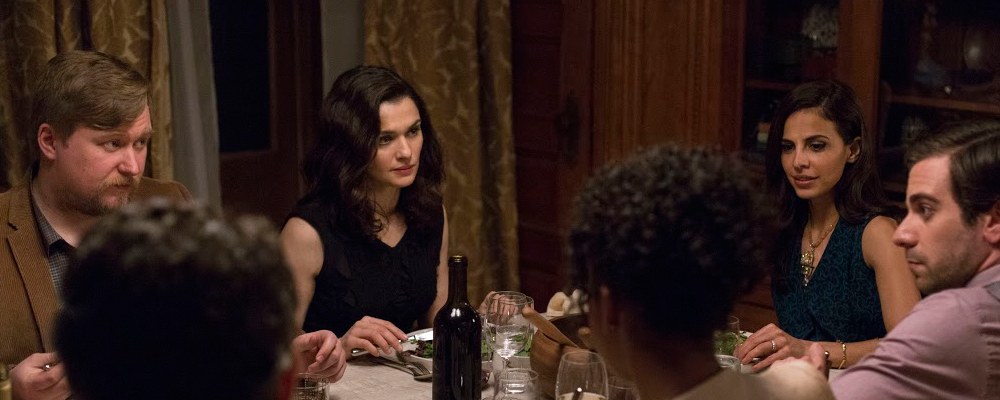Director Joshua Marston Gets Deep About Identity and New Film ‘Complete Unknown’
Sandra Miska
Filmmaker Joshua Marston first burst on to the indie film scene 12 years ago with his debut feature “Maria Full of Grace,” a drama about a female drug mule in Colombian that earned an Oscar nomination. In the years since, Marston has primarily focused on television, but now he is back with his third feature, “Complete Unknown,” a thriller about identity. Rachel Weisz stars as a woman who is constantly changing her name and profession, wiping the slate clean over and over. 15 years after she abandoned her original identity, she reappears to her college boyfriend (Michael Shannon) just as he is on the verge on making a major life decision.
Marston recently sat down with Entertainment Voice to discuss “Complete Unknown,” writing a strong female protagonist, and the surprising profession he would chose if he were to start over.
What inspired you to tell a story about identity?
Like a lot of people, I’ve long had the fantasy of walking away from everything, starting over, wiping the slate clean and becoming someone else. And it’s certainly something that you fantasize about when you’re waiting in between films for the money to come together and actors to say yes, and if it falls apart, you think, “What else might I be doing with my life?”
And so, I had a movie that fell apart, and that was on my mind, so I sat down with my co-writer [Julian Sheppard] to write a new movie, and that’s how it came out. Partly because we were interested in making a movie about a woman who is not who she presents herself as being, and because we were both interested in the subject of identity, and we had this vision of what it would be like to be at a party and look across the room and see someone that you recognize from your past, or you think you recognize from your past, and have them introduced to you by a different name and they don’t quite acknowledge that they know you.
Why did you decide to make it a romance? It’s not a traditional romance, but it’s there, very subtle. What drew you to that?
It was always the idea of a man looks across the room and sees a woman, so I guess there was always a romantic level to it, but we were very interested in making a romance that wasn’t a typical romance. So, for me, ultimately, fundamentally, it’s a movie about identity. There is for sure a romance that has happened in the past and is coming back in the future, but there is a whole subgenre of movies that I would classify as ‘ex-girlfriend story.’ The ex-girlfriend shows up on the stoop and wreaks havoc on the man’s life and he has to question his current relationship and whether or not he’s going to leave.
In many respects, it feels like a real familiar story, but that’s not what we started out as interested in telling. We weren’t interested in telling a story about mid-life crises… And also, we wanted to do more justice to Rachel Weisz’s character than suppose she’s so foolish to think that she can show up in a night and pry a man away from his wife. So, really, all of that construct is a way to get out the questions of identity. All the questions of ‘should I walk away from my life and start something new?’ are also in play for relationships. That’s a question a lot of people ask themselves when they’ve been in their relationship for a long time. It is a romance. I’d say it’s a certain percentage romance, [but] it’s a certain percentage more identity story.
Did you ever feel pressure to add more traditional romantic elements, such as a love scene?
We didn’t get a lot of pressure from anyone, because we were really pretty independent. We did what we wanted to do. We were really interested in making a movie that stays in the present tense. A lot of times when we would write scenes where they were talking about what happened in the past, it just felt like it was in the past, and it didn’t necessarily seem believable that all these years later someone was still stuck in the past and wanted to show up and rehash it all. So that also reigned in some of the focus on the romance side.
When you were writing the film, did you have Michael and Rachel in mind, or did they come along later?
I think Rachel came to mind as we were finishing the first draft, and around the same time that she came onboard, I was very interested in Michael Shannon. I had seen Michael Shannon onstage doing a comedy, a one-man show [‘Mistakes Were Made’]. It’s a very funny play. I had never laughed so hard in my life, so I knew I wanted someone who could do a sort of deadpan humor, so I thought of Michael. Also, it’s a character who, to a certain extent, is an ordinary man going through a mid-life crisis, a familiar mid-life crisis, and if you cast an ordinary actor to play an ordinary character, it risks being ordinary. If you cast Michael Shannon to play an ordinary character, it becomes much more interesting, because Michael Shannon is known for being threatening or a murderer or a psycho killer, so the idea of him playing an ordinary character, to me, was very interesting, and I think it was an opportunity for him to show how capable he is of playing a range of roles.
How did Kathy Bates and Danny Glover get involved?
We discussed for a fair bit who might play that role, and I was interested in Kathy Bates and I was told, ‘she’d never do it. She’s doing ‘American Horror Story.’ There’s no way she has time for something like this.’ Called up her agent, sent her a script on Friday and by Monday heard back that she read it and wanted to do it.
And the same thing happened with Danny Glover. Danny Glover we thought of because the character is written as Haitian and I knew that Danny Glover has a long standing relationship with Haiti and has been to Haiti several times, had a project about the Haitian revolution that he wanted to direct, so it seemed a natural fit that he should play a Haitian character.
In this film you have a female protagonist, as you did in your first feature. What draws you to write women? Do you see it as a challenge, or is it something that comes naturally to you?
I’m not sure draws me to it, but I do know that it was very important that the main character of this film be a woman. There was a brief moment when we were writing the script when I realized that in early drafts people were reading it and women were responding differently than men, and it caused me to really think about what is it about this character that elicits a different response from female readers than from male readers. That led to the question of what if the character was a man? Everything was the same; we just swapped genders. That thought experiment lasted about five seconds. It was so much less interesting to think of a man that gets up and leaves and goes off and does something else, because for millennia men have been leaving their families and disappearing and becoming deadbeats and going off to do other things. The idea of a woman in a patriarchal society that dictates that women are supposed to stay home and not leave, the idea of a woman in that context who does the opposite, gets up and walks away, that’s interesting. That’s strong, that’s courageous, that’s provocative, and that’s a character that’s complicated.
Did the women emphathize with her more?
No, in an early draft, women read her to be manipulative and unsympathetic. So it was a really important challenge for us to think why she was coming off that way. I’m proud to say that I don’t think she comes off that way in the finished film.
No, not at all.
Narratively speaking, in terms of storytelling, one of the things that happens over the course of the movie is you start with a woman you know nothing about who is a complete mystery, and then you find out who she is and what’s she’s doing and you have questions about it, but you may not have so much sympathy for it. But then as the movie continues, you begin to understand where she’s coming from and why she does what she does to an extent, and you begin to see her as vulnerable. There’s a journey over the course of the movie where the audience becomes more sympathetic and more understanding of Rachel Weisz’s character, and I think that’s a really interesting journey.
Back when Rachel’s character first disappeared there was no social media yet. Do you think in this day and age it would be that easy to wipe the slate clean?
That’s a good question. I think it was easier for her when she started out than now. Sometimes I think it might be impossible to do what she does now. Sometimes I think it might be easier, in the sense that anyone can turn around and open a Facebook or Twitter account under a false identity. To a certain extent, I think technology has made it more possible and easier to be anonymous, and to a certain extent I think it’s also made it more difficult with face recognition and social security numbers that never go away It’s more difficult to disassociate yourself from your past.
The movie is a fantasy to a certain extent. It’s treated very realistically. We had long conversations. Rachel would say, “I don’t get it. Is this a fantasy? Is this real?” I would say, “It’s a fantastic premise that’s treated very realistically, where you really are invited to imagine what it would be like to reinvent yourself, and then do it again and again and again.”
If you could reinvent yourself and go into another profession, what would you do?
My co-writer would tell me that I have an inexplicable and somewhat bizarre fascination with underwater welding. Every time we have conversations about what she could be doing, I always say, ‘She could be doing underwater welding.’ I’m fascinated with how underwater welding works and how it would be really cool to be underwater and weld the base of a bridge. I wouldn’t want to do it forever, but I’d like to try my hand at it.
What’s next for you?
I’m getting ready to direct a film called, ‘Come Sunday,’ starring Chiwetel Ejiofor and Robert Redford. It’s the story of a real-life Pentecostal preacher from Oklahoma who declared that Hell doesn’t exist, and he was branded a heretic and ended up losing his church.
Any chance you’ll do a sequel to “Complete Unknown”?
We’re developing it as a television series, since she has so many lives.
Would it be with Rachel and Michael?
It’s too soon to say. I would be surprised if they wanted to revisit the same characters again on a television version. There was an enormous amount of story that we developed and figured out, Julie [my co-writer], me and Rachel and Michael, just in order to shoot the film, which never actually is on screen. We had to figure out all this backstory, of their relationship, but also of all these different lives that she led. And that was just for us to know so they can play the parts, It feels like there’s so much more story to tell, and it’s a fascinating story. I think it lends itself to television, and I think it lends itself to a longer format.
“Complete Unknown” opens Sept. 2 in Los Angeles. It will open in select cities in the following weeks.

